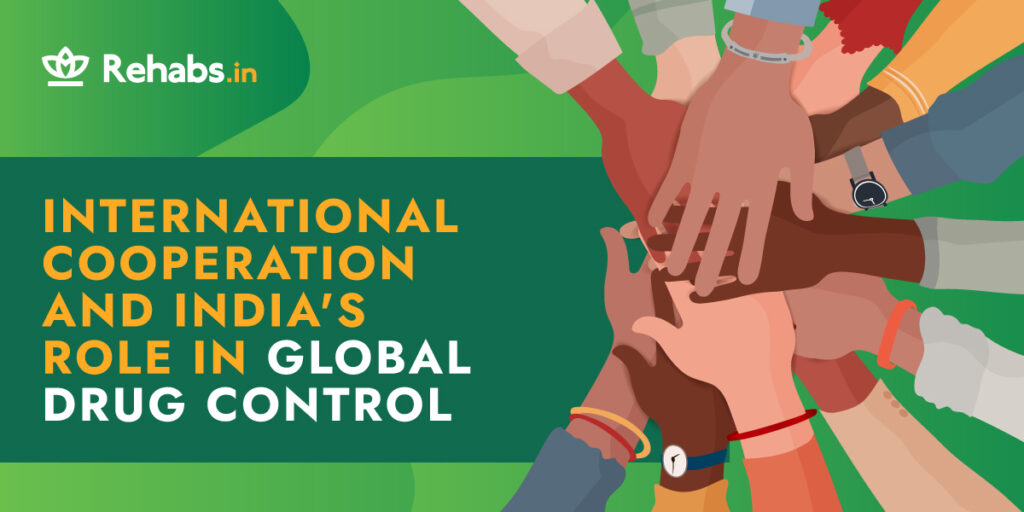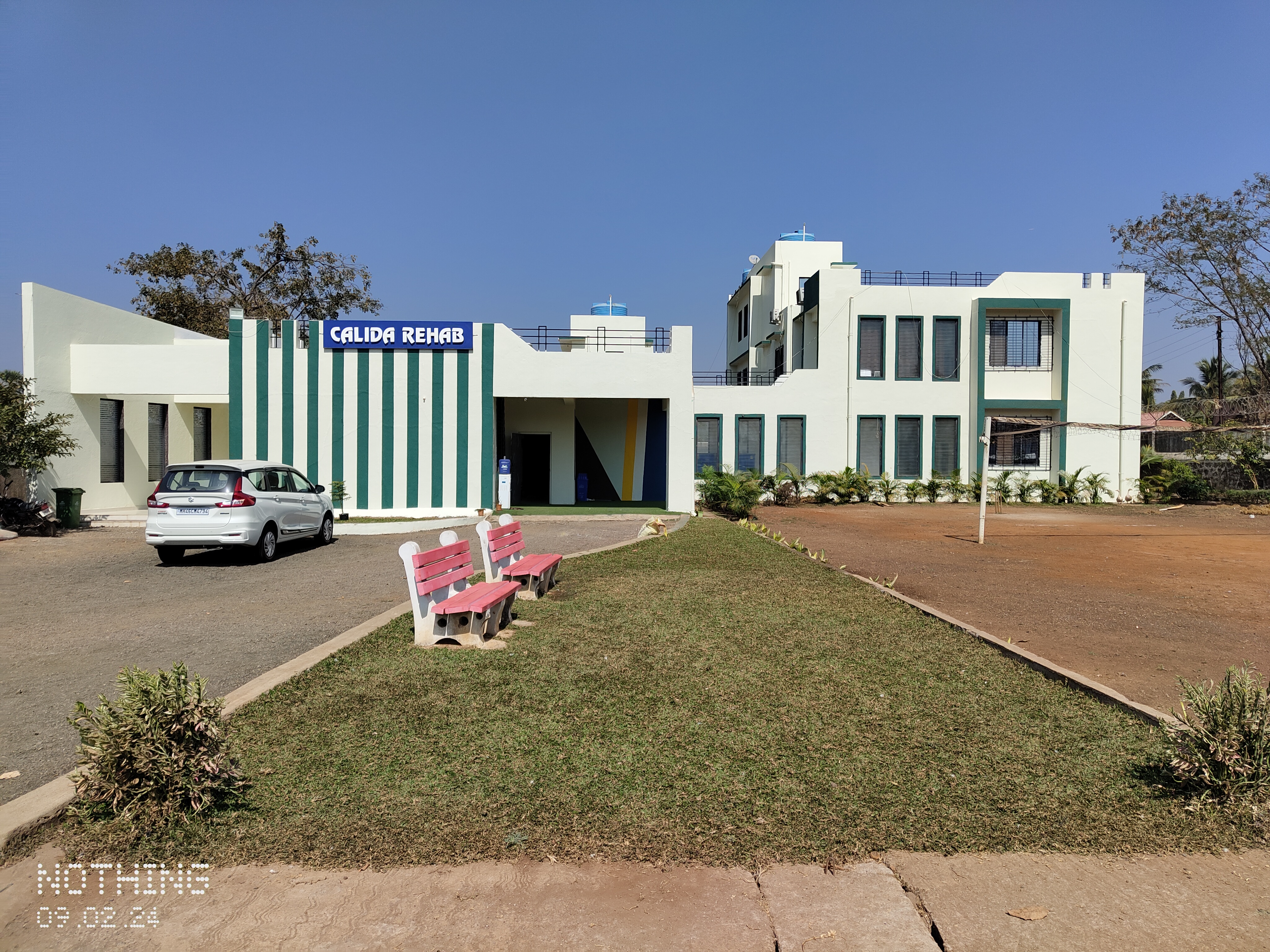International Cooperation and India’s Role in Global Drug Control

Drug control refers to the regulatory measures and policies implemented by governments and international organisations to manage and restrict the production, distribution, and consumption of psychoactive substances. The primary objective of drug control is to mitigate the negative social, health, and economic consequences associated with drug abuse and trafficking. This multifaceted approach involves law enforcement efforts to combat illicit drug production and trafficking, public health initiatives to prevent and treat substance abuse, and international cooperation to address the global nature of the drug trade.
Drug control policies often encompass a combination of legislative measures, enforcement strategies, educational programs, and treatment options to strike a balance between addressing public health concerns and maintaining social order. The effectiveness of drug control efforts relies on a comprehensive and collaborative approach involving various stakeholders at the local, national, and international levels.
The Importance of International Cooperation in Drug Control
The global nature of drug trafficking networks underscores the pervasive and interconnected challenges posed by the illicit drug trade on a worldwide scale. Drug trafficking has evolved into a highly organised and transnational enterprise, with criminal networks operating across borders, exploiting vulnerabilities in various regions to facilitate the production, transportation, and distribution of illegal substances.
These networks often capitalise on differences in legal frameworks, economic disparities, and weak governance structures, enabling them to establish intricate routes for smuggling narcotics. The interconnectedness of modern communication and transportation systems further facilitates their operations, making it challenging for individual countries to combat the issue in isolation. Collaborative efforts among nations, international law enforcement agencies, and organisations are crucial to addressing the global scope of drug trafficking networks, as coordinated strategies can disrupt supply chains, dismantle criminal organisations, and promote a more effective and unified response to this complex and pervasive challenge.
The need for coordinated policy and enforcement strategies in the realm of drug control is paramount due to the inherently global and interconnected nature of the illicit drug trade. Individual nations grappling with drug-related challenges often find their efforts hampered by the transnational reach of criminal networks involved in production, trafficking, and distribution. A lack of coordination may result in fragmented and less effective responses as traffickers exploit jurisdictional boundaries and regulatory gaps.
To address this complex issue comprehensively, countries must collaborate on the development and implementation of cohesive policies and enforcement strategies. A unified approach ensures that law enforcement agencies, policymakers, and relevant institutions work in tandem, sharing intelligence, harmonising legal frameworks, and coordinating operations to disrupt drug supply chains. Such cooperation not only enhances the ability to combat global drug trafficking but also promotes the exchange of best practices, fostering a more robust and efficient response to the multifaceted challenges posed by drug-related issues on the international stage.
Overview of International Drug Control Initiatives
International collaboration is vital in addressing the global challenge of drug abuse and trafficking. Several key agreements and conventions have been established to create a framework for collective action.
Key Global Agreements and Conventions on Drug Control:
- Single Convention on Narcotic Drugs (1961): Establishes measures for the control of narcotic substances, emphasising medical and scientific use while preventing their diversion into illicit channels.
- Convention on Psychotropic Substances (1971): Focuses on regulating psychotropic substances, addressing the risks they pose to public health, and promoting international cooperation in control efforts.
- UN Convention against Illicit Traffic in Narcotic Drugs and Psychotropic Substances (1988): UN drug policies to combat drug trafficking and enhance international cooperation, coordination, and information-sharing among member states.
Role of UN Agencies and Other International Bodies in Combating Drug Problems:
- United Nations Office on Drugs and Crime (UNODC): Provides technical assistance, supports capacity-building initiatives, and facilitates information-sharing to implement and enforce international drug control agreements.
- World Health Organization (WHO): Emphasizes public health aspects, promotes prevention and treatment programs, and ensures access to essential medications, contributing to a holistic approach to drug control.
- INTERPOL, INCB, and WCO: Collaborate to strengthen enforcement mechanisms, share intelligence, and enhance international cooperation in combating drug trafficking.
India’s Contributions to Global Drug Control
India’s strategic position in South Asia places it at a crossroads with significant implications for drug trafficking routes. Its geographical proximity to the Golden Triangle and the Golden Crescent, two major drug-producing regions in Southeast and Southwest Asia, respectively, makes the country a critical transit point for illicit narcotics. The vast and porous borders, particularly with countries like Afghanistan, Pakistan, and Myanmar, create challenges for law enforcement in curbing the flow of drugs. The complex topography, including dense forests and mountainous terrain, further compounds the difficulties of surveillance and interception.
India has a rich history of contributing to international drug control efforts, which is marked by its active participation in shaping global policies. In the 1980s, India played a pivotal role in the establishment of the United Nations Convention against Illicit Traffic in Narcotic Drugs and Psychotropic Substances (1988), reinforcing its commitment to combating the transnational nature of the illicit drug trade.
In contemporary times, India continues to actively engage in international drug control efforts through various initiatives. The country collaborates with global partners, law enforcement agencies, and international organisations to address the challenges posed by evolving drug trafficking networks. India is a key participant in regional platforms such as the South Asian Association for Regional Cooperation (SAARC), where it works alongside neighbouring countries to enhance intelligence-sharing, strengthen border control, and harmonise drug control strategies. The Indian government, through the Ministry of Home Affairs and the Narcotics Control Bureau, implements stringent measures to curb the production and trafficking of illicit drugs within its borders.
In affirming India’s pivotal role in the global chemical and pharmaceutical industry, U.S. special envoy Uzra Zeya said, “India is a global leader in the chemical and pharmaceutical industry, and consequently is a critical, global leader in combating the spread of synthetic drugs.” Zeya emphasised the severe impact of synthetic drugs, stating, “The Synthetic drugs significantly and directly impact the populations of both India, US and also countries around the world, claiming countless lives and perpetuating harmful stigma for those who live with addiction.” She further characterised the challenge as a shared one, noting that the “scourge of synthetic drugs is a shared challenge faced by many of us that requires a global solution.” Zeya’s statements highlight the urgent need for collaborative efforts on a global scale to address the multifaceted issues posed by synthetic drugs.
Bilateral and Multilateral Partnerships
Bilateral drug control efforts involve cooperation and collaboration between two nations to address shared challenges. India actively engages in partnerships with international organisations such as the United Nations Office on Drugs and Crime (UNODC) and INTERPOL. These collaborations facilitate the exchange of information, best practices, and expertise, contributing to a more coordinated and effective global response to the challenges posed by drug abuse and trafficking.
One notable example of successful international cooperation involving India is the joint efforts with the United States in combating narcotics trafficking. The U.S.-India collaboration, particularly through the U.S.-India Counter Narcotics Working Group, has resulted in intelligence sharing, joint operations, and capacity-building initiatives to address the global drug trade.
The shared intelligence and coordinated enforcement strategies have led to more effective border controls, disrupting the flow of illicit substances and dismantling trafficking operations. Additionally, international partnerships have facilitated a comprehensive approach to substance abuse prevention, incorporating insights from global experiences and expertise.
Challenges in International Drug Control
International drug control faces a myriad of challenges that stem from the complex and dynamic nature of the illicit drug trade. One major challenge is the adaptability of drug trafficking networks, which continually evolve their tactics to exploit gaps in international law and enforcement. Inconsistencies in national legislation and varying levels of commitment among countries pose hurdles to creating a unified and effective global response.
Economic disparities can also impede collaborative efforts, as some nations may struggle to allocate resources for comprehensive drug control measures. Geopolitical tensions and diplomatic complexities further complicate cooperation, hindering information sharing and joint operations. Additionally, the constant emergence of new psychoactive substances presents a regulatory challenge, as authorities must adapt quickly to address evolving threats. The global nature of the drug trade requires continuous efforts to overcome these challenges through strengthened international partnerships, harmonised legal frameworks, and innovative approaches that address the multifaceted aspects of drug control.
Future Directions and Opportunities for India
Strengthening international collaborations with organisations like the United Nations Office on Drugs and Crime (UNODC) and INTERPOL provides an opportunity for India to share intelligence, resources, and best practices, fostering a more coordinated response to drug trafficking. Leveraging its strategic position as a transit point for drug routes, India can enhance border security measures and engage in regional initiatives to disrupt trafficking networks. Investing in advanced technologies for surveillance, intelligence gathering, and information-sharing can significantly bolster enforcement capabilities.
India has the potential to contribute to global drug control through public health initiatives, emphasising prevention, treatment, and rehabilitation programs. By aligning policies with international standards, addressing socioeconomic factors contributing to drug abuse, and actively participating in global conversations, India can contribute significantly to the ongoing efforts to combat the challenges posed by the illicit drug trade worldwide.
Conclusion
International cooperation plays a critical role in addressing the intricate challenges posed by the global drug problem, and India has demonstrated ongoing commitment and potential to significantly influence global drug control strategies. The transnational nature of the illicit drug trade necessitates collaborative efforts, and India has actively engaged in partnerships with international organisations, neighbouring countries, and law enforcement agencies.
References:
Ani. (2023, July 20). India’s role critical in combating spread of synthetic drugs: US envoy. www.business-standard.com. https://www.business-standard.com/india-news/india-s-role-critical-in-combating-spread-of-synthetic-drugs-us-envoy-123072000069_1.html
Annual Counternarcotics Working Group Meeting with the Government of India – United States Department of State. (2023, July 20). United States Department of State. https://www.state.gov/annual-counternarcotics-working-group-meeting-with-the-government-of-india/
News and events. (n.d.). https://www.interpol.int/en/News-and-Events
S. (2020, July 12). About SAARC. https://www.saarc-sec.org/index.php/about-saarc/about-saarc
UNITED NATIONS. (1988). FINAL ACT OF THE UNITED NATIONS CONFERENCE FOR THE ADOPTION OF a CONVENTION AGAINST ILLICIT TRAFFIC IN NARCOTIC DRUGS AND PSYCHOTROPIC SUBSTANCES. https://www.unodc.org/pdf/convention_1988_en.pdf
UNITED NATIONS. (1961). SINGLE CONVENTION ON NARCOTIC DRUGS, 1961. In FINAL ACT OF THE UNITED NATIONS CONFERENCE FOR THE ADOPTION OF a SINGLE CONVENTION ON NARCOTIC DRUGS. https://www.unodc.org/pdf/convention_1961_en.pdf
UNITED NATIONS. (1971). CONVENTION ON PSYCHOTROPIC SUBSTANCES, 1971. In FINAL ACT OF THE UNITED NATIONS CONFERENCE FOR THE ADOPTION OF a PROTOCOL ON PSYCHOTROPIC SUBSTANCES. https://www.unodc.org/pdf/convention_1971_en.pdf
United Nations Office on Drugs and Crime. (n.d.). United Nations : Office on Drugs and Crime. https://www.unodc.org/

















